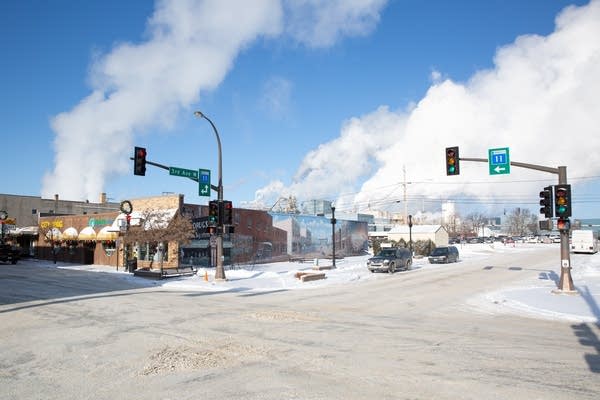In International Falls, a rejection of backyard chickens

Exhaust from the Boise Paper mill fills the cold air of International Falls, Minn., last December.
Evan Frost | MPR News 2019
Go Deeper.
Create an account or log in to save stories.
Like this?
Thanks for liking this story! We have added it to a list of your favorite stories.


